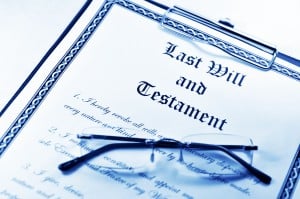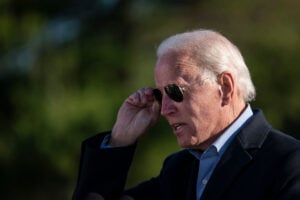Today is the second-to-last day of 2020, and what a year it’s been. It’s had a few highs, but it’s had oh so very many lows. On the first day of 2020, I was on maternity leave, and by the time I returned to work, I was only able to venture to the Above the Law office in Manhattan a few times before the city was shut down. Working parents, I’ve felt your pain, because like many of you, I’ve been working full-time while homeschooling and taking care of a baby at the same time. Thankfully, I’ve had Joe Patrice and Kathryn Rubino on my “quaranteam” (plus all of our wonderful columnists), and I’m happy to say we made it out of this cursed year happy, healthy, and able to bring our readers the latest and greatest in legal news.
Since I started working for ATL in 2010, we’ve wrapped up the year that was with a list of our top 10 stories. Because this year was so different, we’re doing things differently — each of the editors will be making their own top 10 lists. You’ve seen Joe’s, you’ve seen Kathryn’s, and now it’s my turn. Get ready for some of our best human interest stories, law school rankings, and your favorite thing of all: CHARTS.
10. This Lawyer Has New York’s Second Confirmed Case Of Coronavirus
The legal profession was tied to the pandemic from the moment it started in New York. Often referred to as “patient zero” for community spread of COVID-19, Lawrence Garbuz went from being in critical condition to making a full recovery. To this day, he still doesn’t know how he caught the coronavirus.
9. Law Students Forced To Urinate While Being Watched By Proctors During Remote Ethics Exam
Thanks to the pandemic, law students and recent law school graduates across the world were faced with a difficult decision: take exams online with stringent rules or sit the year out and delay starting their careers. Those who opted to take virtual tests were subjected to offensively embarrassing and demeaning situations. Take, for example, the would-be lawyer who had to urinate into a bottle without breaking eye contact with his screen — all while being watched by a proctor. Un-pee-lievable!
8. Florida Lawyer Shows Up To Federal Court In Full Hazmat Suit
How far would you go to help one of your clients during a pandemic? If you’d throw on a hazmat suit to represent one of them during a sentencing hearing, then you just might be a hero of the coronavirus crisis. Unprecedented times like these call for unprecedented measures — and this was one of the most unprecedented fashion choices for a court appearance we’ve ever seen.
7. Pregnant Woman Takes Bar Exam While In Labor, Finishes Test From Hospital After Giving Birth
Speaking of the extreme lengths that recent law school graduates went through to take online exams, Brianna Hill finished the first day of the bar exam while in active labor, gave birth to healthy baby, and then finished the second day of the test from the hospital. Not only did our original story go viral and spread across mainstream media and television outlets like CNN, the New York Times, the TODAY Show, and Good Morning America, but it has a happy ending — she passed the bar exam. Congrats!
6. All Rise: Hundreds Of Lawyers Protest On Steps Of Supreme Court To Demand ‘Impartial Justice’ In Trump’s Impeachment
In case you somehow forgot, Donald Trump was impeached by the House for abuse of power and obstruction of Congress in late December 2019. His impeachment trial started in the Senate in January 2020, and lawyers gathered to protest when it seemed as though things were about to go sideways. Trump was ultimately acquitted by the Senate, but nonetheless, lawyers still did their best to stand up for justice.
5. Law School Grad Who Failed Bar Exam Files Lawsuit Against State Bar, Threatens To Beat Judges ‘Unconscious’ Unless They ‘Follow The GOT DAMN LAW!!!!!!!’
This legal work of art needs no introduction. Please sit back, relax, and enjoy reading one of the most entertaining pro se filings of 2020.
4. The 2021 U.S. News Law School Rankings Are Here
There’s nothing like a little rankings insanity to break up the regular insanity of a pandemic. Lawyers and law students alike love comparing their law school’s prestige to that of the competition, and in a year with little else to do while social distancing and living online, everyone truly relished the opportunity to do something normal again. (On a personal note, when the rankings were released, I wrote this story with one hand while rocking a baby … and now I’m writing this blurb with one hand while balancing a 1-year-old on my knee. Law moms: we get the job done!)
3. Associate Compensation Scorecard: Biglaw’s 2020 Bonus Bonanza
Considering the horrible year the legal sector has had, it’s a wonder that bonus season has been so bountiful. With regular year-end bonuses ranging from $15,000 to $100,000 combined with special bonuses ranging from $7,500 to $40,000, lawyers at many firms were able to rake in obscene amounts of cash, despite the ongoing pandemic. How does your firm measure up? Based on the number of times people have looked at this chart, that’s what every lawyer wants to know.
2. Law School To Permanently Close Its Doors
From closing their campuses to holding classes and exams online, law schools across the country have gone through an incredible amount of change in 2020 thanks to the pandemic. Unfortunately, one law school faced the greatest change of all, a permanent closure as it struggled under the weight of “financial distress,” stranding unsuspecting law students in the process. This story had a happy ending after all, when another law school swooped in to rescue all the students who’d been left without an alma mater.
1. The COVID Crisis Law Firm Layoff Tracker: What’s Your Firm Doing To Survive?
The coronavirus really took the legal world by surprise, and as the economy tumbled downhill at breakneck speed, law firms quickly attempted to manage their expenses by taking major cost-cutting measures ranging from salary cuts to furloughs to layoffs. Legal staff often took the biggest hit when firms decided to trim their headcounts, but lawyers suffered too, with some seeing salary cuts of up to 50 percent. This big chart was the big information hub that everyone in Biglaw needed to see in 2020, making it Above the Law’s most-read story of the year. (Don’t forget to take a look at its sister chart, the salary cut rollback tracker. After their initial cuts, many law firms not only survived, but went on to thrive as 2020 unfolded.)
Thank you so much for spending 2020 with us here at Above the Law. We look forward to sharing what we hope will be a happier and healthier 2021 with you!
 Staci Zaretsky is a senior editor at Above the Law, where she’s worked since 2011. She’d love to hear from you, so please feel free to email her with any tips, questions, comments, or critiques. You can follow her on Twitter or connect with her on LinkedIn.
Staci Zaretsky is a senior editor at Above the Law, where she’s worked since 2011. She’d love to hear from you, so please feel free to email her with any tips, questions, comments, or critiques. You can follow her on Twitter or connect with her on LinkedIn.




















 Olga V. Mack is the CEO of
Olga V. Mack is the CEO of 






 Jordan Rothman is a partner of
Jordan Rothman is a partner of 


